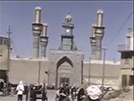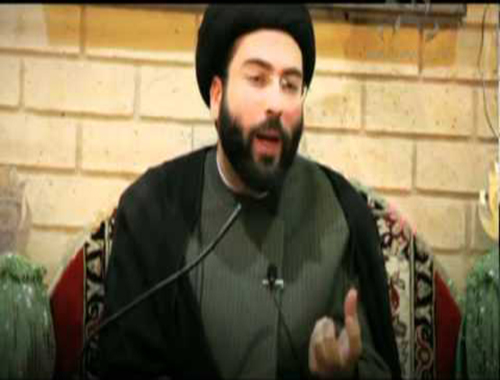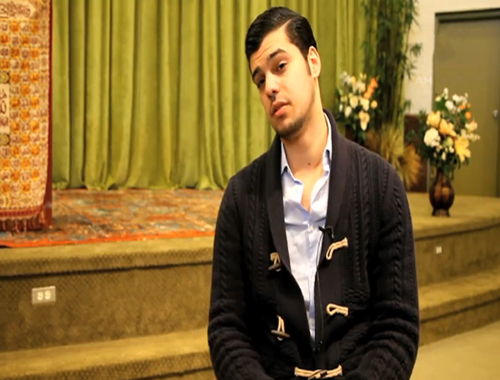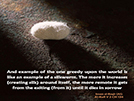Verses 1-5
- Details
- Hits: 2617
Sura Duha
(The Glorious Mornings Light)
No. 93 (Verses 1-5)
بسم الله الرحمن الرحيم
(1)وَالضُّحَى
(2)وَاللَّيْلِ إِذَا سَجَى
(3)مَا وَدَّعَكَ رَبُّكَ وَمَا قَلَى
(4)وَلَلْآخِرَةُ خَيْرٌ لَّكَ مِنَ الْأُولَى
(5)وَلَسَوْفَ يُعْطِيكَ رَبُّكَ فَتَرْضَى
In The Name of Allah, The Beneficent, The merciful
1. By the Glorious Morning Light,
2. And by the Night when it is still,
3. Your Lord has neither forsaken you nor has He become displeased.
4. And surely the hereafter will be better for you than the present (life).
5. And soon your lord will grant you, and you shall be well-pleased.
The Occasion of Revelation:
Many narrations have been cited about the the occasion of revelation of this Sura, of which the following is the most clear:
Ibn-Abbas says that fifteen days had passed since the Prophet (p.b.u.h.) had received any revelation. During this time, the pagans of Mecca taunted Mohammad and said that his Lord had forsaken him and was displeased with him. They added that if he had been right about his divine mission, the revelation would not have ceased for him. Then, the aforementioned Sura descended (and put an end to their statements).
It is noteworthy that when this Sura was revealed, according to a tradition, the holy Prophet (p.b.u.h.) told Gabriel: You delayed while I was looking forward to seeing you..
And, then, Gabriel answered him: I was more eager than you, but I am a missionary servant and do not descend unless by my Lord's leave.
Another tradition cites that a number of Jews came to the Prophet (p.b.u.h.) and asked him some questions about the stories of Zul-qarnain, the men of the cave, and the creation of the Spirit. He told them that he would inform them the next day, but he did not add to his statement: If Allah wills. This caused the inspiration to cease for a length of time and, consequently, the enemies began talking and jearing at him. Hence, the Prophet (p.b.u.h.) felt sad and lonely, but later this Sura was revealed to comfort him (This occasion of revelation does not seem so fitting since the Jews and their meeting with the Prophet (p.b.u.h.), as well as these kind of questions, usually occured in Medina, not Mecca.).
There is no agreement in narrations as to the exact length of time he had to wait, when the moments of inspiration were stilled. Some have cited it as 12 days, some 15 days, some 19 days, some 25 days and some forty days.
Some narrations also denote that it was only for 2-3 days.
* * * *
Commentary :
The Prophet promised to be blessed to his heart's content.
At the beginning of the Sura, again, we are faced with two oaths sworn to the Light and sworn to the Night, saying:
By the Glorious Morning Light.
* * * *
And by the Night when it is still.
The term /duha/ means the beginning hours of the day when the sun rises high in the sky and it brightens up everywhere. This is, in fact, the best time of day or, in other words, it is the youth of the day. At this time of day, in summer, the heat of the sun is not so tormenting. and in winter, it has defeated the coolness of the weather, and it is at this time that we are, both bodily and spiritually, full of energy ready to do whatever we need to do.
The term /saja/ is derived from /sajw/ and originally means 'to be quiet, tranquil'; and it has also been used with the meaning of 'to cover, to darken' but, here, it confers the meaning of 'quietness' and 'tranquility', hence, on the nights when the wind does not blow the terms /laylatun- sajiyah/ 'a quiet night', and for the sea, 'with the lack of any storm and roaring waves, the term /bahrun saj/ 'the quiet sea' are used in the Arabic language.
In any case, what is important about 'night' is its peace and stillness which naturally gives tranquility to Man's nerves and makes him prepared for his next day struggles or days of spiritual life and work. From this point of view 'night' is very important and it deserves to be sworn to.
There is a close similarity and relationship between these two oaths and their contents. The 'Glorious Light' of the day is, metaphorically, the descent of the revelations to the holy heart of the Prophet (p.b.u.h.), and the stillness or quiescence of the night is compared to the days and periods of waiting for revelation, which is sometimes necessary in some cases.
* * * *
Then, following these two great oaths, it refers to the conclusion and the response of the oaths and says:
Your Lord has neither forsaken you nor has He become displeased.
The term /wadda'a/ is derived from /taudi/ which means 'to leave'.
The term /qala/ is based on /qila/ in the sence of 'hate and enmity', and is derived from the root /qalw/ meaning 'to throw'.
Raqib believes that these two refer to one thing, because when one hates another it is as if he throws his heart away and does not accept it back.
In any event, in this verse, there is a particular assurance given to the holy Prophet (p.b.u.h.), for him to know that if after inspiration there were days and periods of waiting, it was due to valid reasons which only Allah knew, but He would never be angry with him nor forsake him as the taunts of his enemies suggested. Allah's Care and Mercyare always around him and supporting him.
* * * *
Then,it continues by saying:
And surely the hereafter will be better for you than the present (life).
O Prophet! You are under His care and Mercy, here, in this world and you will be in a better condition in the Hereafter. He will not be displeased with you either in this fleeting world or in the next eternal world. Briefly speaking, you are dear in the present world and dearer in the Hereafter.
Some commentators have said that the words /akhirat/ and /ula/ refer to the first and the last parts of the Prophet's life. They believe the verse means: 'O, Prophet you will be more successful in the last part of your life than at the first' ; that which refers to the expansion and development of Islam when the Muslims were frequently victorious in battles against their enemies, which occured one after another, and the light of Islam removed the gloom of paganism and idolatry in many areas.
To combine these two commentaries is also possible.
* * * *
And, finally, He has given him the highest glad tidings where it says:
And soon your Lord will grant you, and you shall be well-pleased.
This is a very high respect and honour from Allah to His devoted servant, Mohammad (p.h.u.h), when He states: 'Your Lord will grant you so much so that you shall be well-pleased'; that is, in this world he will win over his enemies and Islam will spread all over the world, and, in the Next World, he will be granted the greatest rewards.
Undoubtedly, the holy Prophet (p.b.u.h.), as the last Prophet and guide of all Mankind, is not content with his own salvation alone; certainly he will be pleased and satisfied when his intercession for his followers is accepted, too. For the same reason it is understood from some narrations that this verse is one of the most optimistic verses of the Holy Qur'an and is, also, an evidence that his intercession will be accepted.
There is a tradition from Imam Baqir (p.b.u.h.) from his father Imam Zayn-al-'abidin (p.b.u.h.), from his uncle Mohammad-ibn-Hanafiyah,from his father Amir-al-Mo'mineen Ali (p.b.u.h.) which says that the Messenger of Allah (p.b.u.h) said: On doomsday, I will stay in the state of intercession and intercede for the sinners of my community so much so that Allah will say: 'Did you become satisfied, O Mohammad? 'and twice I will reply in the affirmative.
Then, Amir-al-Mo'mineen Ali (p.b.u.h) addressed a group of the citizens of Kufa ( a city in Iraq ) and added: Do you believe that the most hopeful verse of the Holy Qur'an is the verse: 'say: o my Servants who have transgressed against their souls! Despair not of the Mercy of Allah...' (Sura Zumar, No. 39, verse 53) ?
The group responded that they did, indeed, believe it.
Then, he said: But we, the Household of the Prophet (Ahl-ul-Bait) say that the most hopeful verse of the Holy Qur'an is thus: 'And soon your Lord will grant you, and you shall be well-pleased' (1).
Needless to say, the intercession of the Prophet (p.b.u.h.) demands some conditions. He will not intercede for just anyone nor can any sinful person have such an expectation.
Another tradition from Imam Sadiq (p.b.u.h.) says: The Messenger of Allah entered Fatimal's home when she, wearing rough clothes of camel wool, was grinding grain with one hand and nursing her child with the other. He, having tears in his eyes, advised his daughter to tolerate the hardship and the bitterness of this world for the sweetness of the Next World, because Allah had revealed to him 'And soon your Lord will grant you, and you shall be well-pleased'. (2)
Explanation :
The Philosophy Behind the Discontinuation of the Revelations:
Looking at the aforementioned verses, altogether, it is well understood that the Prophet (p.b.u.h.) was not absolutely free and all that he had were from Allah, even the revelation; there can be a pause in descending revelation whenever Allah wills and it continues to be descended when He wills. Maybe the pause happened in order to be an answer to those who wanted the Prophet (p.b.u.h.) to bring them miracles, extemporarily, according to their definite wishes, or to change some creeds or some verses, however, he would answer that it was not for him, of his own accord, to change them (as Sura Yunus, No.10, verse 15 avows).
(1) Abul-Futuh Razi, vol. 12, p. 110.
(2) Majma'-al-Bayan, vol. 10, p. 55.











